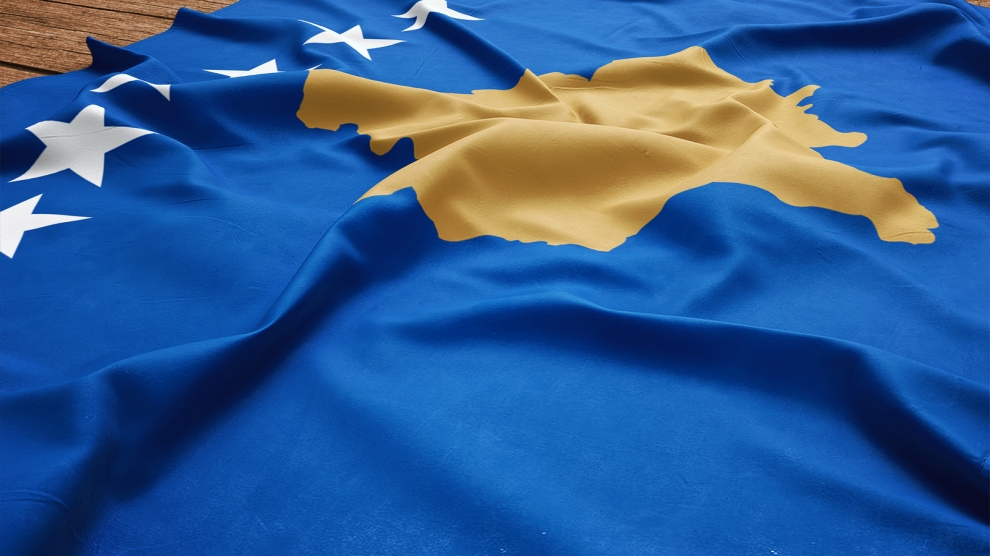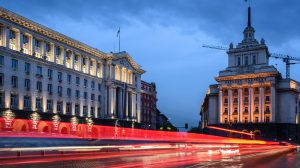Déjà vu as Kosovo PM Haradinaj again resigns to face allegations of war crimes in The Hague, déjà vu too, regarding the lack of focus on victims, transitional justice, and reconciliation.
Fourteen years ago, Ramush Haradinaj resigned as prime minister of Kosovo and vowed to clear his name at the International Criminal Tribunal for the former Yugoslavia (ICTY) in The Hague. On July 23 history repeated itself, as Haradinaj again stepped on a plane destined for The Hague, after resigning his position as prime minister. On July 19, Haradinaj announced that he had been invited by the Kosovo Specialist Prosecutor’s Office in The Hague to attend an interview regarding allegations of crimes committed during and soon after the end of the war in Kosovo, between 1998 and 2000.
It was a poignant date for Haradinaj to begin the journey to his latest defence, as July 23, 2019, was also marked as the 20th anniversary of the massacre in 1999 of 14 Kosovo Serb harvesters in the village of Graçka e Vjetër/Staro Gračko. As with many of the crimes that occurred in Kosovo during and soon after the end of the war, no one has been successfully prosecuted for what happened in Graçka e Vjetër/Staro Gračko. Marking the anniversary, the Co-ordination of Serb Associations of Missing, Murdered and Killed Persons issued a statement declaring that “there is no compromise and normalisation without truth and justice.” What is striking, especially given the coincidence of dates, is that there were no similar sentiments to be found in any public reactions to the news of Haradinaj’s resignation.
When the Kosovo Assembly voted to establish the Specialist Court in 2015, the decision was hailed by the EU and US as an important step towards reconciliation. A joint statement declared that “by dealing with its past and ensuring justice for the victims, Kosovo can achieve reconciliation and build a better future.” In reactions to last Friday’s news, however, it was the political ramifications of Haradinaj’s absence from the political scene that took the place of any focus on transitional justice or the role of the Specialist Chambers in progress towards reconciliation in Kosovo.
Immediate reactions from Kosovo Albanian politicians included the familiar soundbites about the UÇK cause as being inherently “pure and fair”, but attention soon shifted to assessing the ramifications of Haradinaj’s absence from Kosovo’s political landscape, and speculation about the prospect of extraordinary elections in Kosovo.
Serbian reactions too focused on political consequences. Serbian President Aleksandar Vučić called the resignation a “political trick”, adding that “I have no doubt about it, he will return as a great Albanian hero, reaching the peak of his popularity.” The opposition Democratic Party of Serbia echoed similar sentiments, but focused on the implications of his absence from the EU-sponsored Pristina-Belgrade dialogue.
Given the emphasis that the EU and US had previously put on the Specialist Chambers’ contribution to reconciliation in Kosovo, it was perhaps surprising that there was a complete absence of this point in the statements of any Western embassies in Pristina. Neither US Ambassador Philip Kosnett, the UK embassy, the Swiss embassy or German Ambassador Christian Heldt mentioned the importance of the work of the Specialist Chambers with respect to uncovering evidence of crimes committed in Kosovo, bringing closure to victims, or contributing to reconciliation between Serbs and Albanians. Instead focus was on following proper procedures regarding new elections, and the continuing functioning of state institutions.
In 2005, there was little talk of reconciliation in Kosovo. Haradinaj’s first resignation came just one year after the ethnically-motivated riots that swept throughout Kosovo. The International Crisis Group reported at the time that the indictment process went ‘surprisingly well’ after widespread speculation that the news would be accompanied by violence, thus giving an indication of expectations of the time. Perhaps in an effort to encourage calm on the streets, the then head of UN Mission in Kosovo, Søren Jessen-Peterson made a gushing statement in support of Haradinaj, lamenting that “personally, I am saddened to no longer be working with a close partner and friend.” Justice for alleged victims, or support for the idea that truth and justice can facilitate reconciliation were not emphasised at the time. In 2008 Haradinaj was acquitted by the ICTY and returned to Pristina to a hero’s welcome (he was also acquitted after a second trial in 2011-2012).
Fourteen years on, thankfully Kosovo is far more stable, with no real expectation that high-profile invitations or indictments by the Specialist Chambers would be met with violence on the streets.
But yesterday was not only the day that Kosovo’s prime minister again set off to clear his name in The Hague, thus igniting fierce speculation and debate about political ramifications. It was also the day that families in Graçka e Vjetër/Staro Gračko remembered their loved ones, and just another day that the families of the 1,647 missing persons from all ethnic groups had to live without knowledge of what happened to their relatives. It remains to be seen whether history will again repeat itself for Ramush Haradinaj regarding the outcome of these latest investigations, but as reactions to Friday’s news have shown, it appears that dealing with the past in Kosovo is no higher on the agenda than it was in 2005.






[…] BURIMI: Emerging Europe […]
[…] a snap general election and forms a new government in the autumn. The election was called following the resignation of prime minister Ramush Haradinaj, who has been summonsed to face a special war crimes tribunal in The […]